Jerry Powell’s performance was typical of one with literally the last name in San Diego prep athletics.
Powell was the youngest of four brothers whose achievements resonated here and in professional ranks over three decades, beginning after World War II, when Charlie Powell first set foot on the San Diego High campus.
Charlie (football, basketball, track, baseball), Ellsworth (basketball), and Art Powell (football, basketball, track) starred for the Cavemen from 1948-56.
Charlie and Art went on to long careers in pro football and Charlie also was a heavyweight boxing challenger, rising to No. 5 in the ratings.
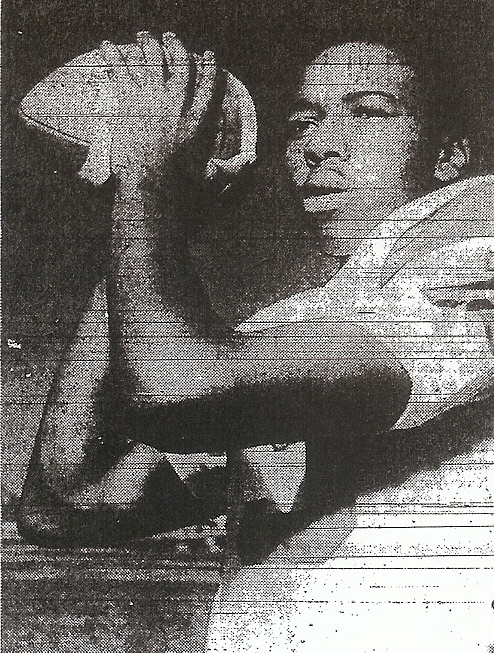
LEAVES THE HILLTOP
Jerry burst on the scene at San Diego in 1965, quarterbacking the junior varsity to a 9-0 record, but the youngest Powell transferred to Lincoln before the end of his sophomore year.
San Diego never recovered and Powell created his own legacy at the school whose birth in 1949 (and Morse’s in 1962) eventually led to San Diego’s athletic decline.
Powell led coach Shan Deniston’s varsity to a 7-2 record in 1966. One of its wins was 31-20 over Eastern League champion Morse, but upset losses to Hoover and St. Augustine knocked the Hornets out of the playoffs.
BOSSES TINKER WITH POSTSEASON
Not long after that season San Diego Section administrators made a decision that would have a profound effect on Powell’s senior year.
The bosses found a way to not extend the playoffs but to make them more inclusive.
They decided to anoint two champions.
The San Diego Section board of managers, made up of various administrators, did this by creating a playoff “Metropolitan Conference” of teams from the Eastern, Western, and Grossmont leagues.
A similar “County Conference” of teams from the Metropolitan, Avocado, and Palomar leagues was put in place.
RULING FAVORS HORNETS
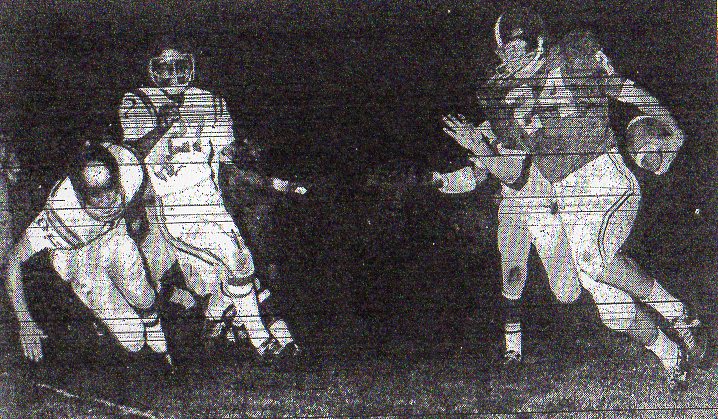
While the two-conference idea was not popular among prep football followers and purists (the format was for football only; the other major sports followed previous guidelines), coaches and players had an additional championship for which to compete.
The good news was that an “at-large” team from each AA league was going to be invited to the postseason.
Lincoln was a beneficiary, as was Escondido.
The Hornets, who finished second to St. Augustine in the Eastern League and would have been an observer under the pre-1967 playoff setup, won the championship playoff of the Metropolitan Conference.
A longer, more maneuverable, three-week playoff season would come in the future.
Administrators were reacting, slowly.
REDEMPTION
Lincoln beaten, 20-13, when St. Augustine overcame a fourth-quarter deficit in the teams’ regular-season encounter, was Eastern runner-up but defeated the Saints, 28-0, in the championship rematch.
Lincoln first had to survive a scare against Birt Slater’s typically tough Kearny Komets.
After Chester Wells recovered a Lincoln fumble on the Hornets’ 28-yard line with 2:38 remaining in the game, quarterback Wayne Obereutter pushed Kearny to Lincoln’s one-foot line.
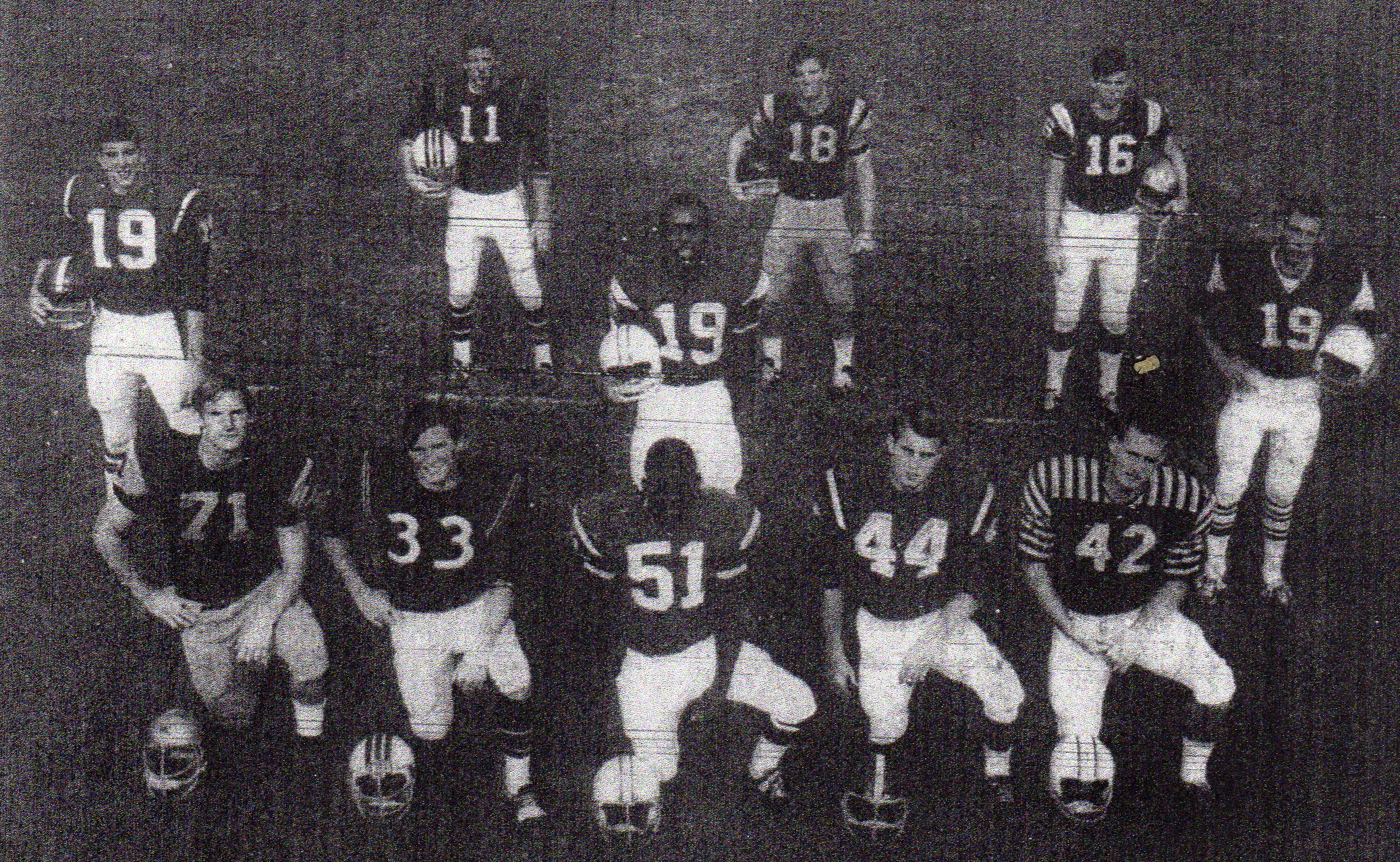
There the Komets expired, out of time outs and not able to run another play.
Obereutter dropped to his knees in frustration on the rain-soaked Balboa Stadium field.
MISMATCHED REMATCH
Powell rushed for 124 yards, including a 43-yard touchdown hike, and passed for 136 yards, including an 87-yard touchdown strike to Mike Chapman, and passed or kicked for four points after in Hornets-Saints II.
Powell was San Diego Section player of the year, all-state, and a prep all-America, but he shared Eastern League back-of-the-year honors with St. Augustine quarterback Reed Chastang.
San Diego’s Dale Davis was lineman of the year and one of St. Augustine’s all-leaguers was tackle Dave Gross, years later a four-decade head coach at San Diego section schools.
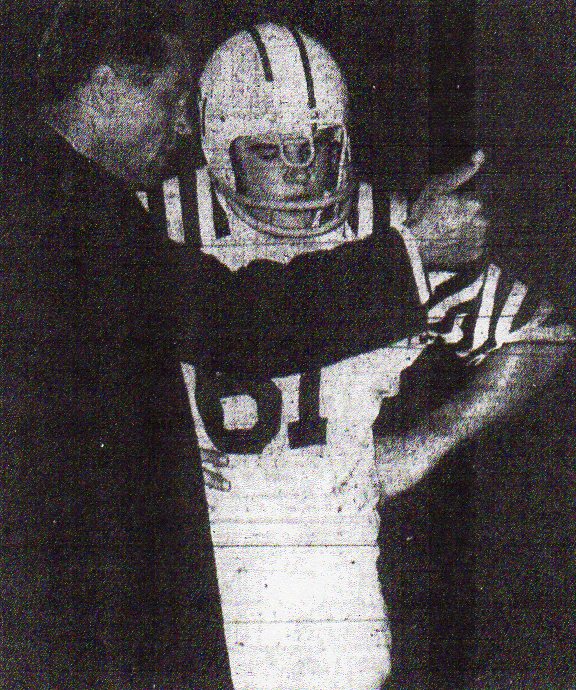
THE RIGHT CITRUS
Orange Glen topped Chula Vista, 16-7, in the County finals as quarterback Paul Moyneur, the Avocado League player of the year, ran for 171 yards in 19 carries and scored on runs of 23 and 32 yards.
A winner-take-all, Lincoln-Orange Glen game would have extended the postseason into three weeks but that was not going to happen.
The 10-1 Hornets would have been favored over the 11-0 Patriots.
NORTH COUNTY FRENZY
Escondido High was 68 years older than Orange Glen and had won 242 games, compared with the Patriots’ 16 since they became the city’s second high school in 1963.
But their midseason battle for Avocado League supremacy was billed as the Super Bowl of the North County.
Escondido was coached by the legendary Bob (Chick) Embrey, Orange Glen by Dick Disney, a standout running back in the early ‘fifties at Point Loma and a former assistant to Embrey at Escondido.
The undefeated, 6-0 new school, 4 ½ miles away on the city’s East side, played its home games at Escondido High and were taking on the tradition-strong Cougars, 5-1.
Bill Center of The San Diego Union reported a turnout of 12,000 persons as Orange Glen defeated the Cougars, 14-7.
“We played Escondido before 11,500 in a stadium that seats 8,500,” said Disney, who claimed that he “looked around to send in a play one time and there was a 45-year-old lady sitting on the bench.”
Orange Glen defeated Chula Vista before 8,000 persons at Aztec Bowl.
WITHER BREITBARD GAME
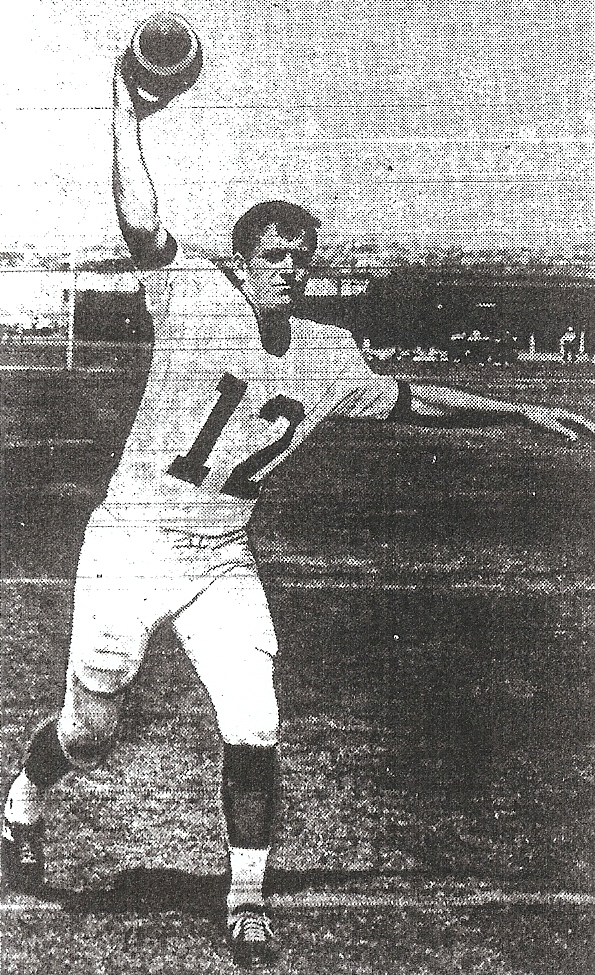
Bob Breitbard’s annual College Prep All-Star game, a fixture on the sports calendar for 19 summers, passed into history after Grossmont’s Brian Sipe led the County all-stars to a surprising, 13-7 win over the City.
Sipe, 1966 San Diego Section co-player of the year with Hoover’s John Morstad, completed 13 of 26 passes for 210 yards and 2 touchdowns as the County evened the series at 2 wins apiece.
A crowd of 9,721 first announced at Balboa Stadium by Breitbard officials, was amended to 7,477.
STARTED IN 1949
The game had come under criticism from junior college coaches in 1966. The coaches did not like the event date (usually late August) and were fearful of injuries to players who would be reporting within a week.
Bob McInerney, the Breitbard Foundation’s executive director, was defensive when addressing questions from the media and seemed to challenge anyone to come up with a better solution.
The popular game made its debut in 1949 and hewed to a format of all-Southern California against all-Los Angeles City through 1955.
The game became San Diego County versus L.A. City in 1956, and finally went to the San Diego City-County format in 1964.
Insurance costs for liability and some occasional rowdyism at the teams’ training camps, Marine Corps Recruit Depot and Naval Training Center, were two of Breitbard’s reasons for bailing.

UPWARDLY MOBILE?
University left the suburban Avocado League for the urban Western circuit and found that the cost of living had gone up, taxes were higher, and real estate more expensive.
The Dons were 40-17-4 since 1960 as members of the Southern Prep or Avocado leagues but fell to 2-5-1 this season, the poorest record in coach Bull Trometter’s 13 seasons.
Trometter sensed a long season when, trailing Lincoln only 13-0 after three quarters in the season opener, the Dons fell apart as the Hornets erupted for 26 fourth-quarter points in a 39-0 victory.
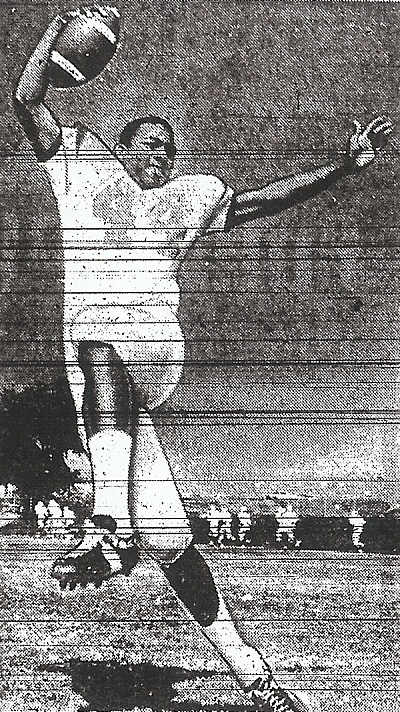
NO “CARRYOVER”
Marian coach Jan Chapman declared that “when we tied San Marcos, 20-20, we proved to ourselves that we can play with anyone in the Palomar League.”
The Crusaders finished 5-3-1 and had 17 returning lettermen but would finish only 4-4 in 1968 and lose to perennially powerful San Marcos, 27-6.
Monte Vista was walking proud at the start of the season, having won four consecutive Grossmont League games at the end of the 1966 campaign, ending a streak of 34 consecutive league losses; the school opened in 1961 and the Monarchs never had won a league game.
The success of 1966 meant nothing. The Spring Valley school was 0-6-1 in Grossmont play.
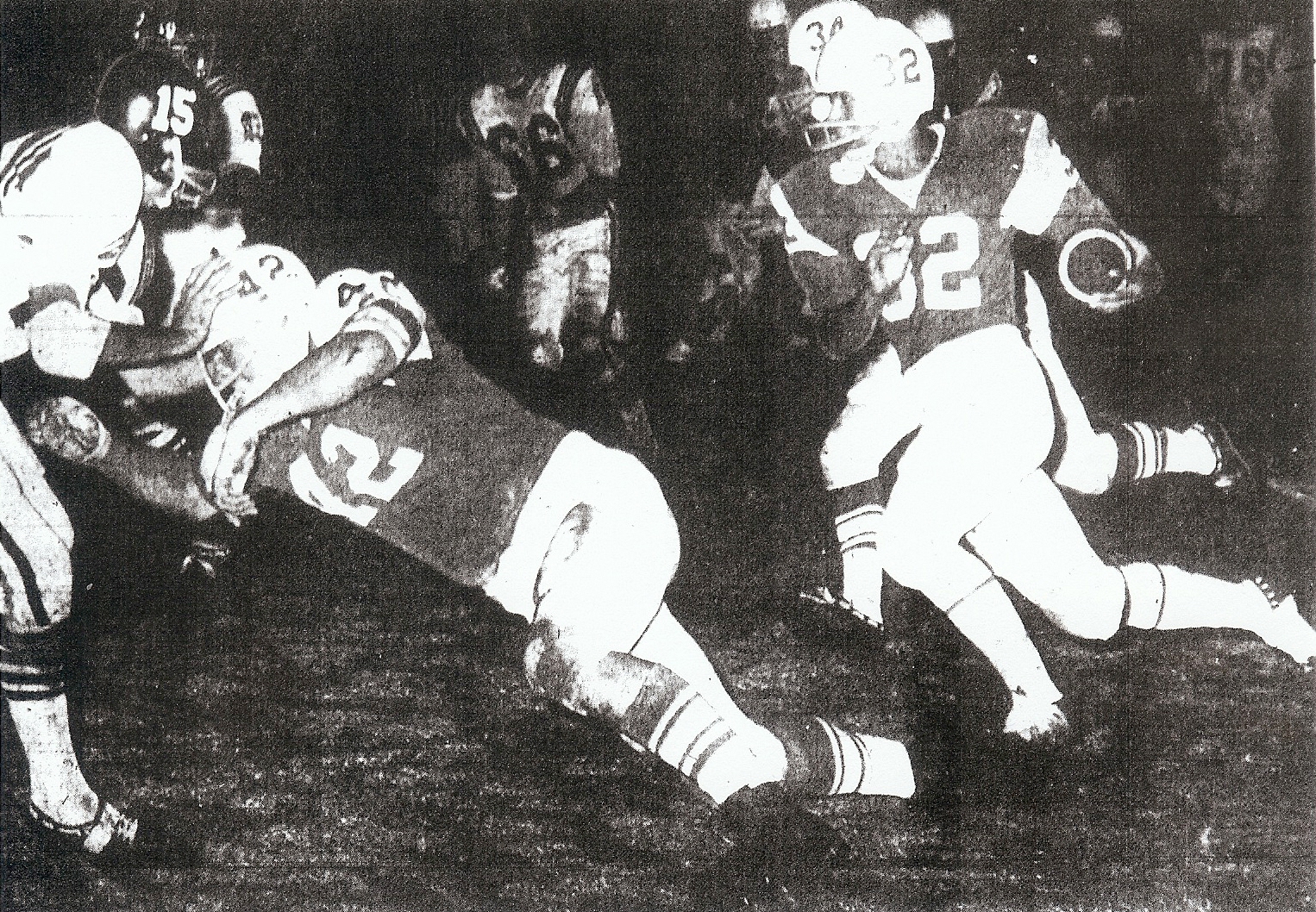
UNDERMANNED
Bonita Vista, adding an 11th grade in its second year, played a varsity schedule in its first attempt at football.
Schools that did not have a complement of grades 10, 11, 12, often tried playing a combined junior varsity-varsity slate, or all JV except for 1 or 2 majors.
The Barons fielded a varsity without any seniors. As expected, coach Wayne Whitby’s youngsters looked and felt as if they’d run a gauntlet of baseball bats.
Things looked fairly promising after a 19-10 loss to Calexico in the opening game, which was followed by a 40-7 victory over Wildomar Elsinore.
Reality set in.
The Barons dropped their next game, 47-0, to Brawley and gave up 287 points in their last 7, limping to the finish line with a 1-8 mark.
HARD ROCK
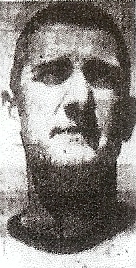
Barren, unlevel, cement-like fields at Mount Miguel, Monte Vista, Helix, Escondido, and La Jolla were cited by coaches.
“It worries me to just to be on one of those fields,” said Grossmont’s Pat Carroll.
“There’s a lack of grass, uneven surfaces, and overwork,” said another Grossmont League coach who didn’t want his name in the newspaper.
The coach pointed out that the situation at Mount Miguel resulted from “ten weeks of drills, varsity and JV games, and Pop Warner activity. Then the field was patch-worked (with) dead clumps of sod.”
Granite Hills’ Jim Symington pointed out the danger of sprinkler heads. “They’re two to three inches above the ground,” he said. “Those are really dangerous.”
The solution would be more fields and artificial surfaces in the future.
HAIL, MONTEZUMA!
Gil Warren was named head coach at Castle Park and Dave Lay at Sweetwater, pairing as rivals two former San Diego State teammates.
Lay, a tackle from Grossmont High, and Warren, a wingback-defensive back out of Sweetwater, were on Don Coryell’s first Aztecs team in 1961.
Each coached 11 years at his respective school. Warren had a record of 87 wins, 23 losses, and three ties for a .783 winning percentage and was 7-3-1 against Sweetwater.
Lay was 82-30-4 (.724) and, including another head coaching stint at Orange Glen, compiled a career mark of 101-35-5 (.734) in 13 seasons.
Warren’s 28-year record at Castle Park (he returned, from 1992-98 ), San Diego Southwest, and Olympian, was 218-88-5 (.709).
Lay liked to run the ball. Sweetwater rushed for 525 yards in Lay’s first victory, 34-7 over La Jolla.
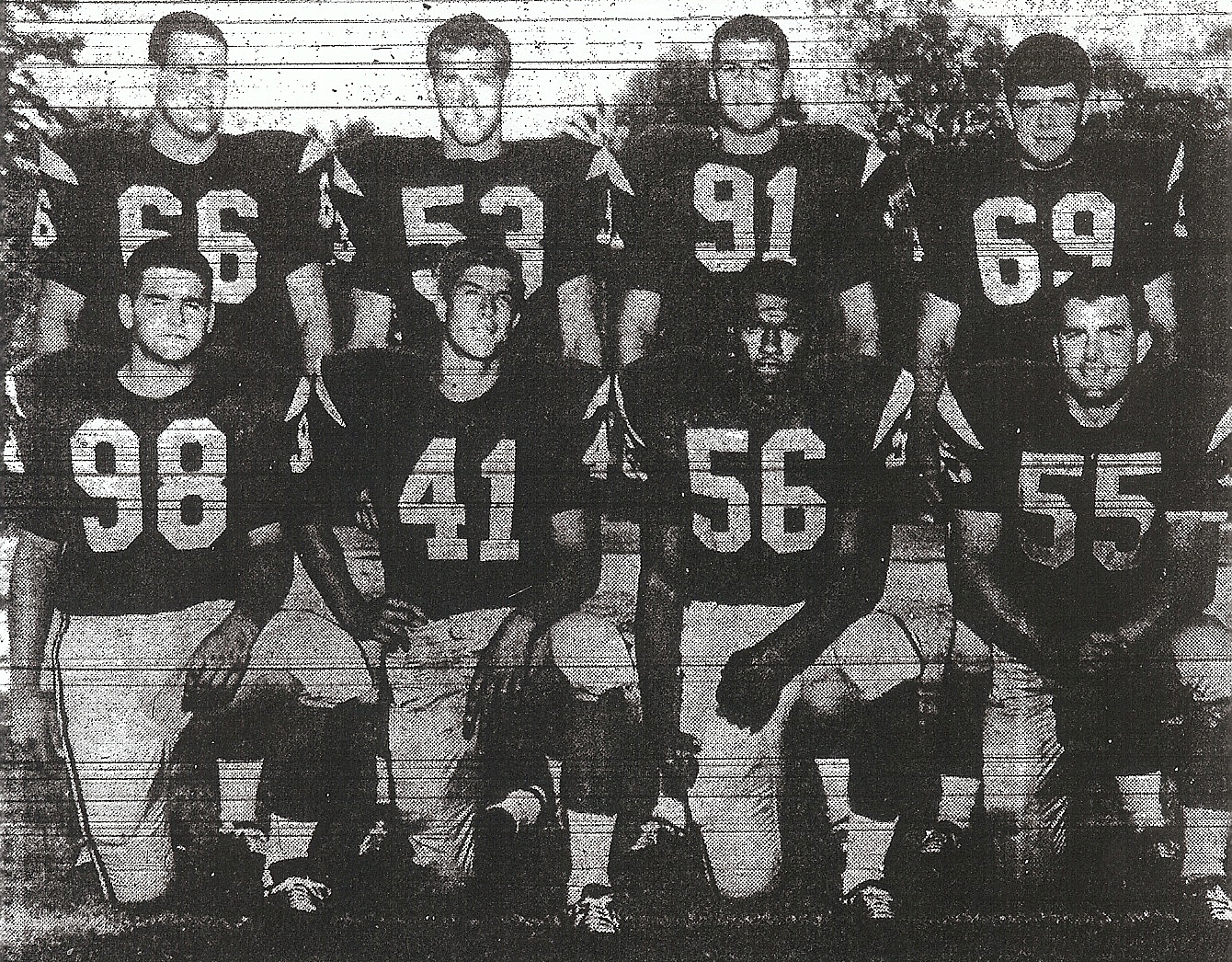
QUICK KICKS—St. Augustine’s 32-6 win over Hoover gave the Saints their first Eastern League title and first league championship in the 42 years the school had been playing football…for most of that time the Saints played an independent schedule…several Lincoln players went on to play college football and safety Doug Jones had a six-season career in the NFL…Jones was Kansas City’s sixth-round draft choice in 1973 out of Northridge State and played for three teams…Oceanside’s 19-game Avocado League winning streak ended with a 14-0 loss to Orange Glen…the Pirates also were stunned in the season opener, losing, 38-20, to El Capitan as the Vaqueros’ 150-pound workhorse, Fred Hight, rushed for 285 yards in 41 carries and scored 4 touchdowns…Hight also averaged 12 yards on three pass receptions…the eight teams in the playoffs had a combined, 59-9-3 record: St. Augustine, 9-0, Orange Glen, 9-0, Lincoln, 8-1, Kearny, 6-1-2, Escondido, 7-2, Grossmont, 7-1, and Chula Vista, 6-3, and San Marcos, 7-1-1…future all-pro cornerback Willie Buchanon was an all-Avocado League end at Oceanside…all-league tackle Pete Shmock of San Dieguito held the County shot put record at 64 feet, 11 inches, for several years, was best man at the wedding of University of Oregon teammate Dan Fouts, and earned international status when he qualified for the 1980 Olympics…his lifetime best was 69-3…more often than not, Shmock’s name was misspelled Schmock in the media…George Hoagland announced his decision to retire after Madison’s seventh straight loss…the Warhawks were 18-35-1 under Hoagland, the school’s first coach who started the program at Madison in 1963 after years at San Diego High… “I can’t stand to get beat,” said Hoagland…”I came from the school of winners and I can’t be anything else.”….
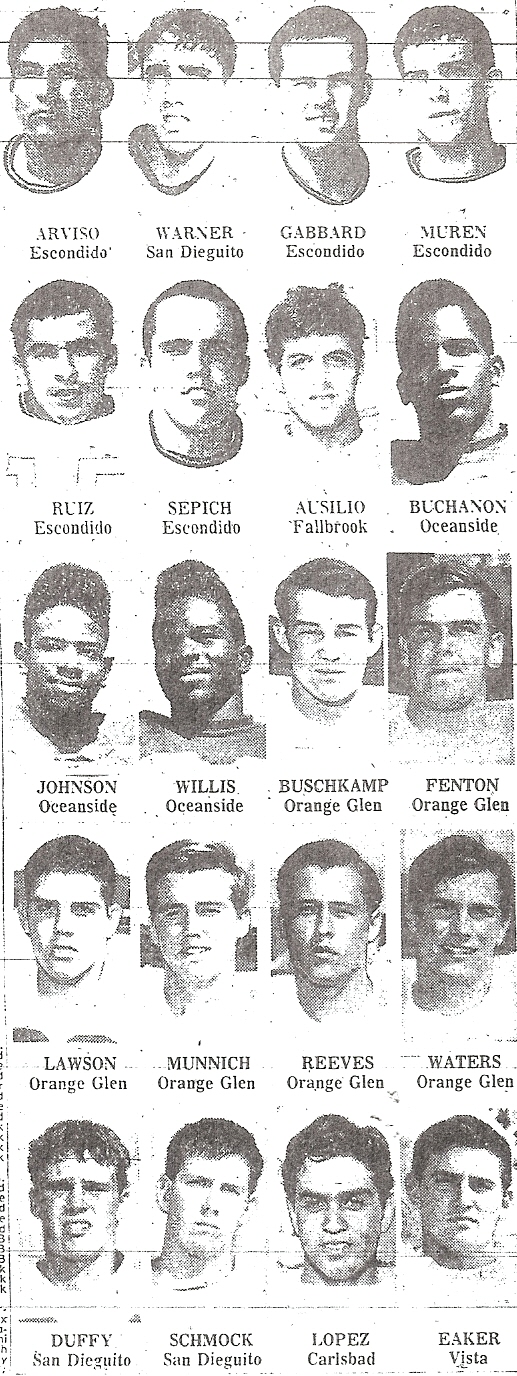

AWESOME MEMORIES!!! Thanks!!!
Fifty-five years and the memory lingers. Thanks for writing, Miguel.